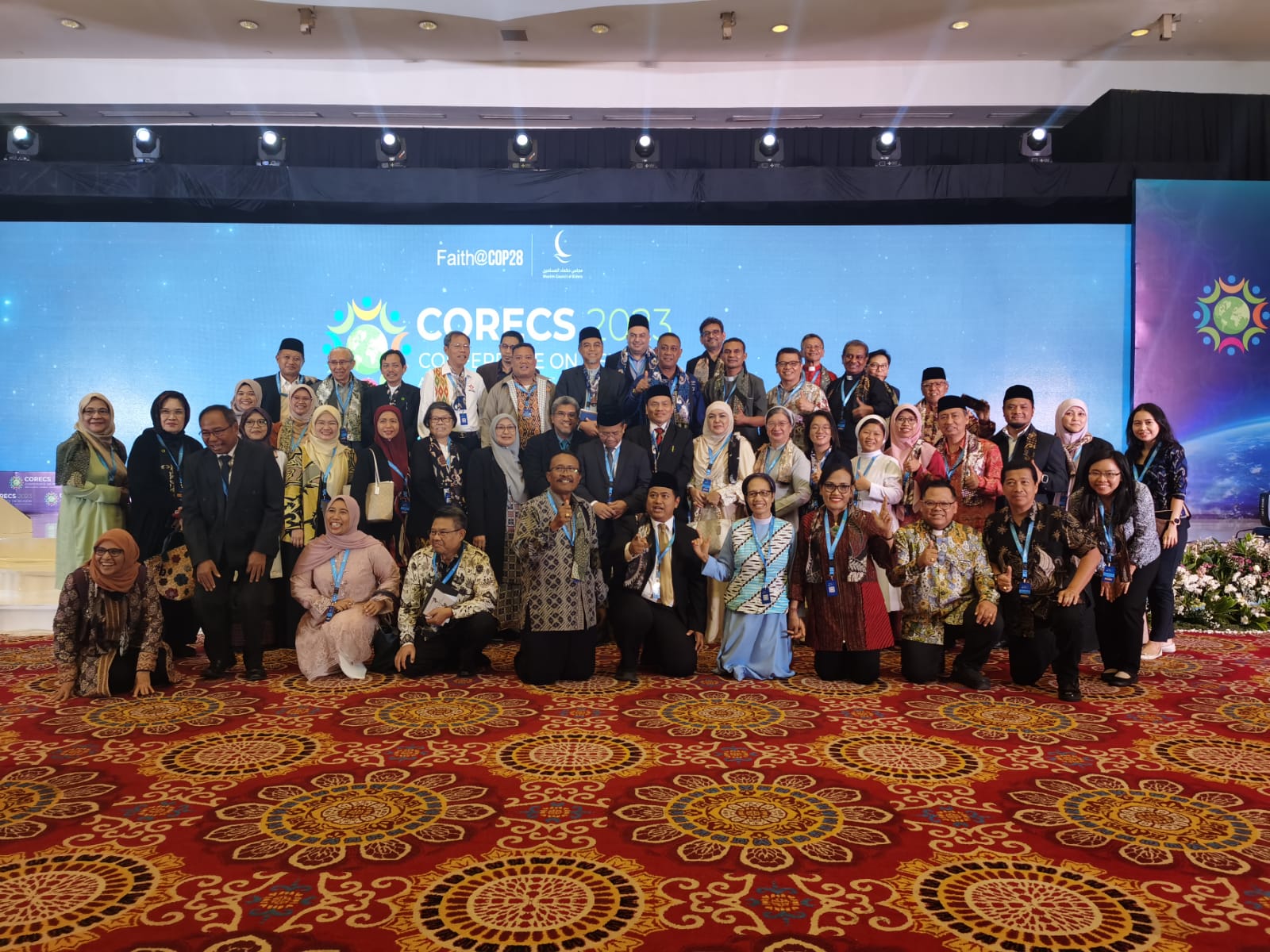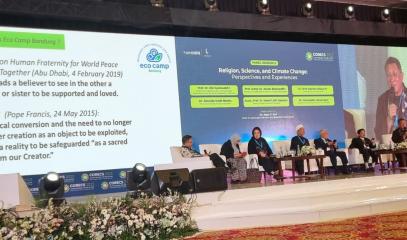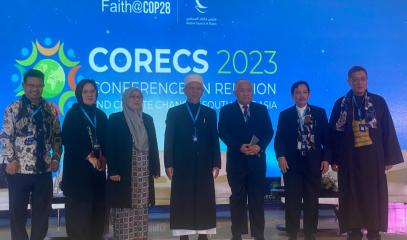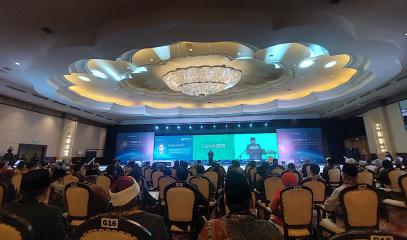Conference in Jakarta brings religions together to fight climate change
The Muslim Council of Elders opened an office in the Indonesian capital during yesterday’s conference. The Council plans to work with other groups in Malaysia and Pakistan. Focus on the environment coincides with Laudate Deum, and comes a few weeks before COP28 in Dubai. Christians and Muslims share the same concern for the environment. The Bandung Eco Camp highlights the Church’s commitment at work.
Jakarta (AsiaNews) – A Conference on Religions and Climate Change Southeast Asia (CORECS) was held yesterday in Jakarta, the capital of Indonesia. Dozens of religious leaders from different faiths came from all over the region to the event, organised by the Muslim Council of Elders (Muslim Hukama Council MHM).
This is part of a series of initiatives following the historic Document on Human Fraternity for World Peace and Living Together signed jointly by Pope Francis and Grand Imam of al-Azhar Ahmad al-Tayyeb in February 2019 in Abu Dhabi (United Arab Emirates).
The Jakarta conference, which focused on combining spiritual and religious elements to care for creation, was held on the same day that the Vatican published Pope Francis’s Apostolic Exhortation Laudate Deum, on climate change eight years after His Encyclical Laudato Sì.
The MHM, an organisation created by al-Tayyeb himself in 2014, used the interfaith meeting on climate in Jakarta, which comes a few weeks before the 28th session of the Conference of the Parties (COP28) in Dubai (UAE) next November and December, to open an Indonesian office.
Speaking to hundreds of participants, MHM Secretary General Mohamed Abdelsalam thanked the Indonesian government "for supporting our initiative" and the opening of an office in the Indonesian capital.
"This international conference on religion and climate change is taking place here as a supporting event ahead of COP28 in the United Arab Emirates, in Dubai,” he said yesterday.
The environment is very topical for the Southeast Asian nation; the most populous Muslim country in the world has some 94 million hectares of forests and is among the countries most affected by climate change.
In view of the UN conference, Abdelsalam noted that, "our group will be among the proponents of the Faith Pavilion, a new thing that has not been present in previous editions" of the global summit on climate.
Another international conference is set for 6-7 November in Abu Dhabi with delegates from the Catholic Church, experts from the United Nations Environment Programme, and local authorities.
For the MHM’s Jakarta office, the goal is to start a "fruitful collaboration" with other groups in Malaysia and Pakistan to "promote fraternal dialogue, social tolerance, peace, and living together".
“Our imminent and clear challenge right now is climate change,” said Saiful Rahmat Dasuki, on behalf of the Indonesian Ministry of Religious Affairs.
In his view, religious leaders have an increasingly important role to play since they will be called to speak out more frequently and carefully to prevent "the destruction of nature".
Fr Stanislaus Ferry Sutrisna Wijaya, from the Bandung eco camp, is a leading member of Indonesia’s Catholic Church, dedicated to environmental issues and nature conservation.
For decades, his work has allowed thousands of people - students, teachers, university students, religious leaders - to learn more about nature conservation.
On the sidelines of yesterday's conference in Jakarta, the clergyman stressed how the mission of Bandung eco camp is closely tied to the Abu Dhabi document.
Through Laudato Sì (2019) and Laudate Deum (2023), "we are all called to promote brotherhood and peaceful coexistence and spark cooperation among people in society to preserve nature.”
Since its establishment in 2014, the camp has been visited by at least 30,000 environment enthusiasts, helped train about 500 green leaders as well as 75 environmental volunteers, with the participation of 2,162 schools with 69,628 students and their parents.
Fr Stanislaus’s concerns are shared by Indonesia’s Environment Ministry. "The Paris Agreement should be supported by all parties,” said Laksmi Dhewanti, an official with the ministry. “The goal of zero emissions in 2060 should become our common objective.”
(Fr Ferry Sutrisna Wijaja PR contributed to the article)
04/07/2022 14:08
15/03/2021 14:07
05/02/2019 16:30










.png)










